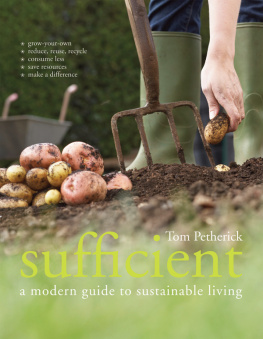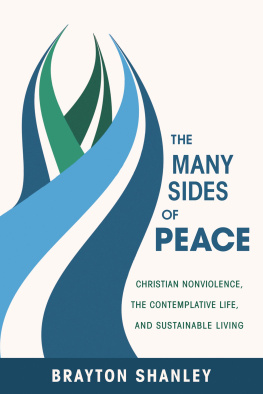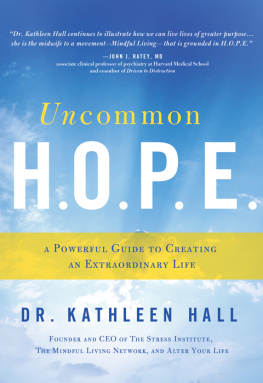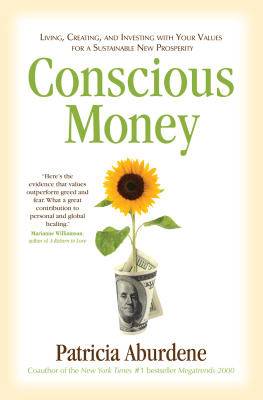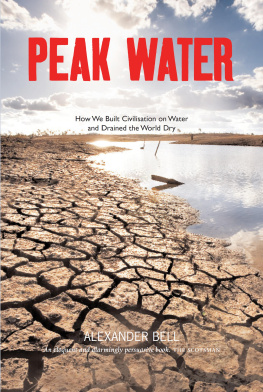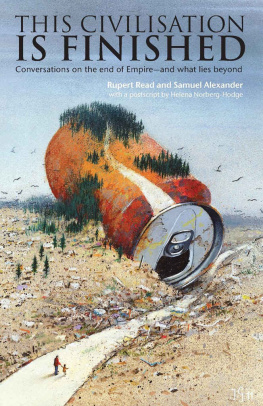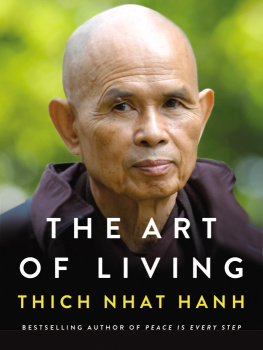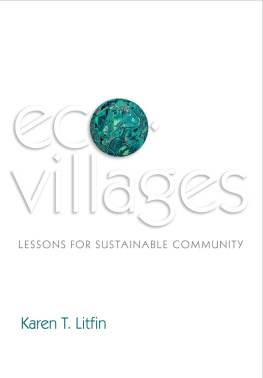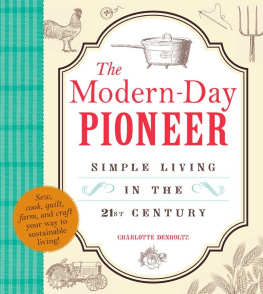ENTROPIA
LIFE BEYOND INDUSTRIAL CIVILISATION
Samuel Alexander
ENTROPIA: LIFE BEYOND INDUSTRIAL CIVILISATION
First published 2013 by the Simplicity Institute, Melbourne, Australia
www.simplicityinstitute.org
ISBN: 978-0-9875884-2-5
Copyright 2013 Samuel Alexander
Cover and map design by Andrew Doodson 2013
All rights reserved. No part of this work may be reproduced, recorded, or transmitted in any form, whether in print or electronically, without the express written permission of the copyright owner.
For further information, including print copies of this book, see www.bookofentropia.com.
Disclaimer: Entropia, in the English language, is an invented word that has been used occasionally in academic contexts and commercially. In this book the author uses the word independently and descriptively, claiming no association with any other uses or entities.
Entropia is a masterful work of the imagination that envisions a world beyond growth and consumerism. This is no escapist fantasy but rather a practical and inspiring reminder of what we humans are capable of and a wake up call to action. It is a literary manifesto that will inspire, challenge, and give hope
Paul Gilding, The Great Disruption
Looking back from the future, this visionary book describes the emergence of a culture and economy based on material sufficiency. In doing so it provides one of the most detailed descriptions we have of an ecologically sane way of life. Overflowing with insight and beautifully written, Entropia unveils the radical implications of moving beyond fossil fuels. This book may come to define what sustainability really means.
Richard Heinberg, The End of Growth
Utopian novels usually outline a world of material abundance, in which technology has reduced labour to a minimum and where everyone is rich. But Samuel Alexander, following the tradition of Henry Thoreau and William Morris, has written a utopia of sufficiency, in which a simple living community of poet-farmers rebuild their society after the collapse of civilisation. Entropia is both confronting and inspiring, giving us an insight into the possibility of a much saner and more satisfying world.
Ted Trainer, Transition to a Sustainable and Just World
One of the more intriguing attempts to date to imagine a viable future on the far side of our civilisations decline and fall, Samuel Alexanders Entropia borrows the language of Utopian literature to present alternative visions of politics, society, and spirituality in the aftermath of the industrial age.
John Michael Greer, The Ecotechnic Future: Envisioning a Post-Peak World
Table of Contents
Acknowledgements
In writing this utopia of sufficiency I was influenced and inspired by many people. Henry Thoreau has been by far the greatest influence on my worldview, for it was he who awakened me to the insight that superfluous wealth can buy superfluities only. It is easy to forget that insight, however, and fall back to sleep, so in order to negotiate the path of sufficiency successfully, I discovered that it is essential to practise techniques of mindfulness and self-discipline, a lesson I learnt first from the Greek and Roman Stoics. William Morris, in his utopian novel, News from Nowhere, helped me to see what a society based on material sufficiency might look like, and John Stuart Mill taught me that a time would come when a stationary, non-growing economy would be not just socially desirable but ecologically necessary. Consequently, the best ideas in the following pages are already expressed in the works of these great thinkers and writers, so if there is any originality to the message my book delivers, it is only through synthesising those ideas and creatively adapting them to very different times.
I am also greatly indebted to my colleagues and fellow authors at the Simplicity Institute Ted Trainer, Mark Burch, David Holmgren, and Simon Ussher all of whom, in their own way, have deeply shaped the social vision presented in this book. Additionally, I must acknowledge Serge Latouche, whose work introduced me to the insight that degrowth, not merely zero-growth, is what is needed to achieve sustainability in overdeveloped nations. With respect to energy, Howard and Elisabeth Odum and Joseph Tainter have been my biggest influences, showing me how central energy is to the world we live in. Finally, I must acknowledge Rob Hopkins and the Transition Movement, for developing what I consider to be the most promising framework for bringing about a just and sustainable, post-carbon world.
Many people read drafts of this book and discussed them with me. I would like to thank Michael Green, Andy Gibson, Helen Duckham, Johnny Rutherford, Aaron Brenneman, Imogen Jubb, Martin Hanson, Katherine Copsey, Clare Kirk, and Mark Burch, for offering me such helpful feedback and some vital encouragement. I owe special thanks to Andrew Doodson, for creating the cover for this book; Merridy Pugh, for proofreading the manuscript (see www.merridypugh.com ); and Derek Baron for assisting me with publication. I am lucky to have such amazing friends.
I dedicate this book to Helen and Laurie, for showing me how beautiful life can be when living simply, laughing often, and loving deeply.
Prologue
After the poets were banished from Platos Republic it is said that they set sail into unknown horizons in search of a new place to call home. They had come to the conclusion that being accepted in such a civilisation was not a prize worth fighting for, so they chose not to resist their violent eviction and just left civilisation to itself, liberating themselves from its curse in the process. No matter how heavy the burden of freedom might be, the poets knew that the burden would always be preferable to the chains from which it arose.
For months the poets searched for new lands, often in raging seas, exploring the vast blue yonder with hopeful determination. But, alas, all their efforts met with no success. As food supplies diminished, and finding the oceans empty, hopes of survival began to fade. One poet even expressed the grim judgment that their collective existence would soon expire, and in silence they all began meditating on this imminent and seemingly unavoidable reality with stoic resignation. That fateful night, as the poets were on the brink of starvation, the seas raged higher than ever before, thunder roared fiercely and lighting crashed, and in the darkness it seemed as if their story was in fact in its closing chapter. Looking death in the face, the poets began chanting their own requiem in a state of passionate tranquillity
Next page

